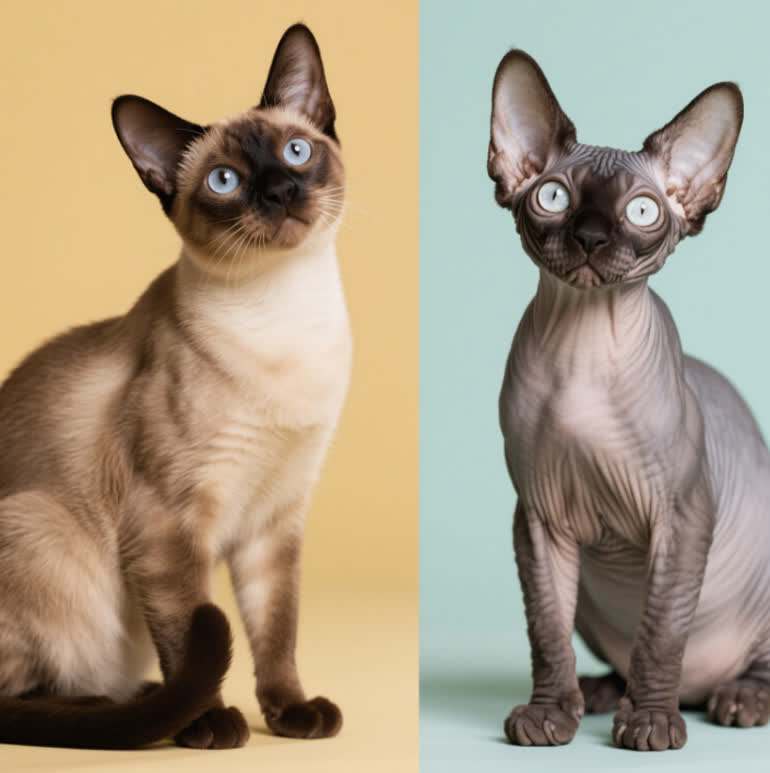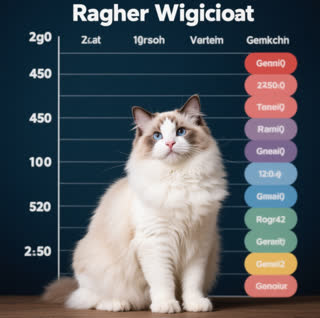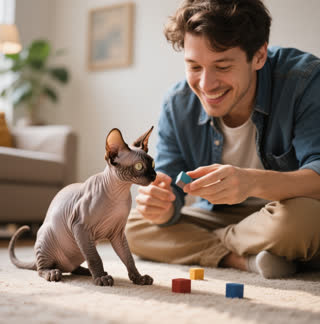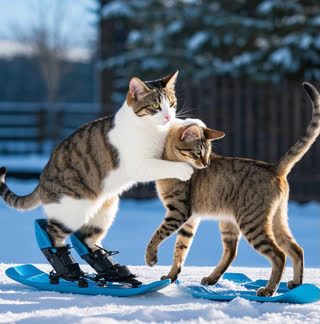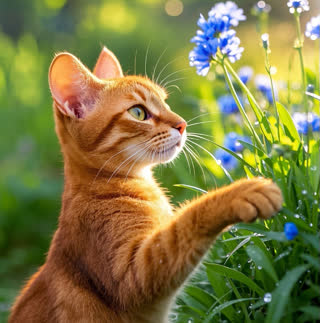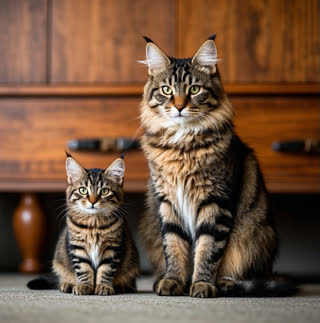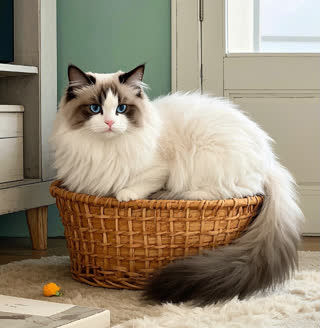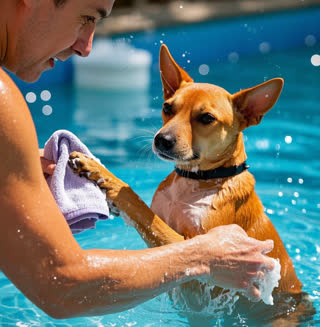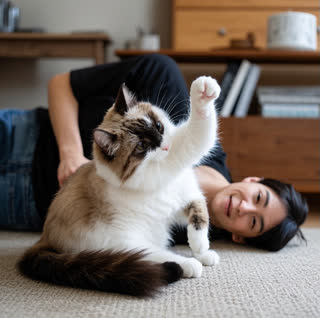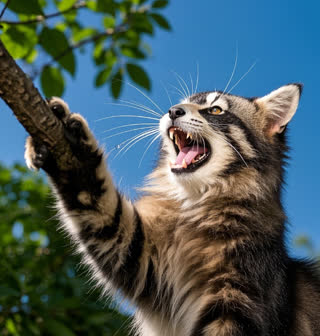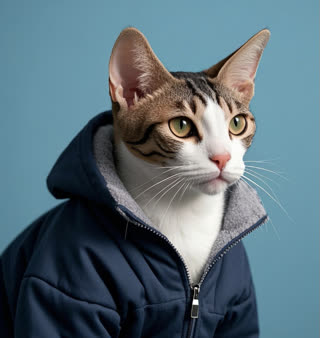Origins and History
Physical Characteristics
Body Type: Medium-sized with a lean, muscular build. Their long legs and wedge-shaped heads give them an athletic appearance.
Coat: Short, fine, and ticked (each hair has multiple color bands), creating a shimmering effect. Common colors include ruddy, red, blue, and fawn.
Eyes: Almond-shaped and typically gold, green, or copper, which complement their regal expression.
Body Type: Small to medium-sized with a slender frame, long legs, and a triangular head. Their large ears and round eyes give them a mischievous, “alien-like” look.
Coat: Short, curly, and soft to the touch, often compared to lamb’s wool. The coat comes in various colors and patterns, including solid, tabby, and tortoiseshell.
Eyes: Large and round, ranging from gold to blue or odd-colored.
Temperament and Personality
Known as the “Clowns of the Cat Kingdom,” Abyssinians are highly intelligent and curious. They thrive on mental stimulation and love interactive play, such as fetching toys or solving puzzles. These social cats form strong bonds with their owners and enjoy being part of family activities. While they’re affectionate, they also value their independence and may climb high perches to observe their surroundings .
Devon Rex cats are often described as “puppy-like” due to their loyalty and desire to be near their owners. They are extremely playful and energetic, constantly seeking attention and mischief. These cats adapt well to households with children or other pets and are known for their ability to entertain themselves with simple toys. However, they can become clingy if left alone for too long, so they thrive in homes where someone is present most of the day .
Grooming and Care
Coat Care: Their short, dense coat requires minimal grooming. Weekly brushing helps remove loose hair and prevent hairballs.
Health: Generally healthy, but prone to patellar luxation, progressive retinal atrophy, and periodontal disease. Regular vet check-ups and dental care are essential .
Coat Care: Their curly coat is prone to matting, especially around the ears and neck. Daily brushing with a metal comb or slicker brush is recommended.
Health: Devon Rex cats may inherit genetic conditions like hypertrophic cardiomyopathy (HCM), polycystic kidney disease (PKD), and hip dysplasia. Responsible breeders should provide health clearances for these issues .
Activity Levels and Exercise Needs
Ideal Living Environment
Best suited for active households with access to vertical spaces.
Tolerates apartment living but needs opportunities to climb and explore.
Does well with other pets if socialized early.
Thrives in homes where someone is around to provide companionship.
Prefers cozy environments due to their lack of insulating fur.
Adapts well to families with children or other animals.
2025 Trends and Considerations
Healthcare Advances: New vaccines and genetic testing for conditions like HCM and PKD are becoming more accessible, allowing breeders to produce healthier kittens .
Sustainability: Ethical breeders are increasingly prioritizing eco-friendly practices, such as using organic bedding and sustainable cat food.
Price Range: Devon Rex kittens typically cost $1,200–$1,800, while Abyssinians range from $900–$1,500, depending on lineage and breeder reputation .
Final Verdict: Which Breed Is Right for You?
Choose an Abyssinian Cat Breed if you value intelligence, independence, and a regal appearance. They’re ideal for active families or individuals who can provide mental stimulation.
Opt for a Devon Rex Cat if you prefer a playful, affectionate companion who thrives on human interaction. They’re perfect for households seeking a loyal, mischievous addition.
By understanding the Abyssinian cat breed vs. Devon Rex cat differences 2025, you can select a breed that aligns with your lifestyle and preferences. Both breeds offer unique joys, but the right choice ultimately depends on your ability to meet their specific needs.
